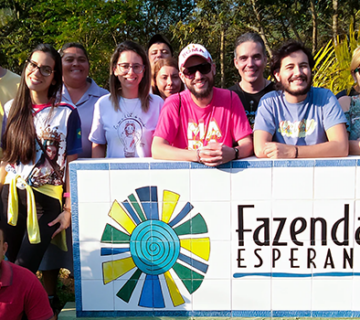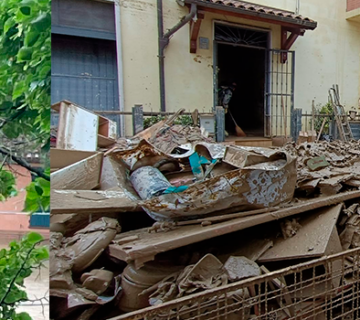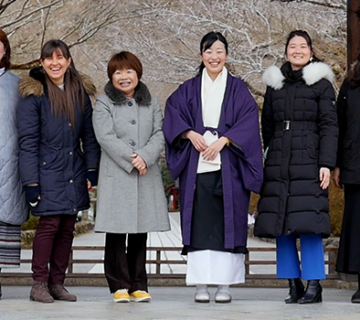 «As we know, our Movement came about because a small group of people, a microcosm of humanity, discovered a “wellspring” and let themselves be imbued by a stream of living water – a new and deeper understanding of the good news: God is Love! God loves us. God loves everyone. In our lives, even in the particular circumstances of everyday living, with its problems and projects, its sufferings and joys, we are not alone. If we so desire, and if we are open to it, the presence of God, this extraordinary superior presence, can play a role in all that we do, helping in unexpected ways, and enriching and ennobling each and every aspect of our daily lives.
«As we know, our Movement came about because a small group of people, a microcosm of humanity, discovered a “wellspring” and let themselves be imbued by a stream of living water – a new and deeper understanding of the good news: God is Love! God loves us. God loves everyone. In our lives, even in the particular circumstances of everyday living, with its problems and projects, its sufferings and joys, we are not alone. If we so desire, and if we are open to it, the presence of God, this extraordinary superior presence, can play a role in all that we do, helping in unexpected ways, and enriching and ennobling each and every aspect of our daily lives.
We have a Father: a divine Providence is looking down on us and watching over us. Certainly, this faith in God’s love is present, even today, in the hearts of many. Nonetheless, oftentimes we fail to perceive the logical consequences of this faith. We lead our lives, building the earthly city and wanting to renew the world, as if we had to do all of this completely on our own. … To give you just one example, one of the strongest convictions that our Movement has developed throughout its forty years of life, a conviction supported by daily experience, is this one: that living in accordance with the Good News and launching the revolution of the Gospel in the world, is synonymous with launching the most powerful social revolution.
Is there social inequality in the world today? Are the rich and the poor still on opposing fronts? We believe, like Mary (and through the grace of God we have seen this fulfilled in more than one place on earth) that the law of the Gospel put into practice can truly fill the hungry with good things and send “the rich away with empty hands” (Luke 1:53). We can attest to the fact that if the beatitude on poverty (cf. Luke 6:20) and Jesus’ warning, “Woe to you rich” (Luke 6:24) are taken seriously, they can give a powerful thrust to the restoration of social equality.
Are we now faced with the problems of unemployment, of the elderly, the alienated, people with disabilities, the hungry and the many concerns of the developing nations? Doesn’t the entire history of Christianity indicate that the page of the Gospel concerning the “final exam” which will be given to every Christian, “I was hungry and you gave me food…” (Mt. 25:35) offers us remarkable solutions? Haven’t we ourselves also experienced that by putting that page of the Gospel into practice with commitment, in accordance with today’s demands and using methods suited to the times, many of these problems can be resolved?
And the “giving” that the Gospel demands (“Give, and it shall be given to you”) which guarantees the promise of the “good measure pressed down, shaken together, running over” (Luke 6:38), which our Movement has experienced many times, isn’t this also a practical way of acting, capable of relieving those who suffer from poverty, hunger, and loneliness, those who are in need of everything?
It is also our daily experience that in “asking” as the Gospel teaches, we receive (see Luke 11:10); that “all these things” (and “these things” could be for some health; for others a job; for still others a house, or a child, or something necessary) “all these things will be given you besides” (Mt. 6:33).
We have often seen with our own eyes, to the glory of God, the “hundred times over” that Christ promised to those who have left everything to follow him (see Mt. 19:27). … And if it happens here, for the little that we do, through the grace of God, for the little that we love, why can’t it happen everywhere?»
Chiara Lubich’s message to the Day Meeting of the New Humanity Movement
Rome, 20 March 1983 – Source: Chiara Lubich Centre


 Italiano
Italiano Español
Español Français
Français Português
Português



No comment